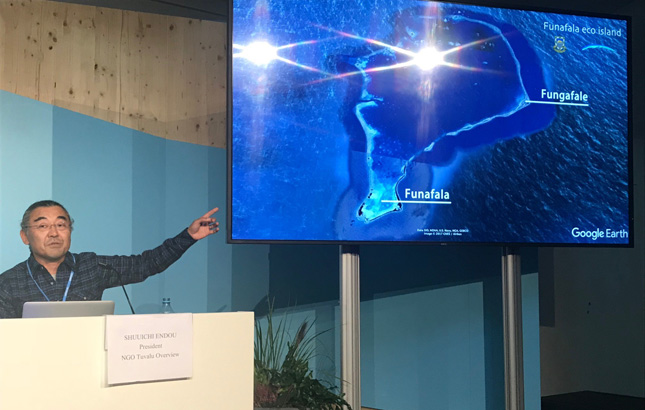-
Bike-sharing Data and Cities: Lessons From China’s Experience
›
The first U.S. city to host a docked bike-share system, Washington, D.C., is now home to a rapidly growing influx of dockless bikes, with five companies vying for the market. The docked system still accounts for 87 percent of the shared bikes in the United States, but the number of dockless bikes—which can be located by riders using an app and then left anywhere—is growing rapidly. The data from these location-enabled bikes provide a unique opportunity to measure the point-to-point transportation needs of millions of people in some of the world’s densest cities.
-
The “Most Important Issue We Face”: New U.S. Global Strategy for Water Emphasizes Health and Security
›
“Water may be the most important issue we face for the next generation,” writes President Donald J. Trump on the first page of the first-ever U.S. Global Water Strategy. Prepared by the U.S. State Department and released in mid-November, the landmark report was required by Congress’ bipartisan Senator Paul Simon Water for the World Act of 2014. During the public comments phase, the New Security Beat published recommendations from its fellows and experts. Now that it is out, we’ve asked them to share their thoughts on the final report.
-
Hot Times: Waste-to-Energy Plants Burn Bright in China’s Cities
›
$1 billion sales in two minutes. More than 250,000 purchases every second. Singles’ Day, China’s annual retailing extravaganza, absolutely crushes Black Friday: E-commerce giant Alibaba raked in $17.8 billion in gross sales during last year’s event, more than double the combined total of $6.8 billion in sales during the United States’ 2016 holiday shopping kick-off. The shopping spree lasts only 24 hours, but its environmental impacts will extend for decades.
-
An Unlikely Ambassador: Ghana Gurung on Snow Leopards and Community Resilience
› As a child growing up in Nepal’s mountainous Upper Mustang region, Ghana Gurung understood that his survival depended on the mountains and his community. Today, as senior conservation program director at World Wildlife Fund-Nepal, he works to protect the endangered and elusive snow leopard by improving local communities’ livelihoods and the mountains’ ecosystem.
As a child growing up in Nepal’s mountainous Upper Mustang region, Ghana Gurung understood that his survival depended on the mountains and his community. Today, as senior conservation program director at World Wildlife Fund-Nepal, he works to protect the endangered and elusive snow leopard by improving local communities’ livelihoods and the mountains’ ecosystem. -
From Disaster Risk Reduction to Sustainable Peace: Reducing Vulnerability and Preventing Conflict at the Local Level
›
The summer of 2017 was a stark reminder that climate change exacerbates both the intensity and frequency of natural disasters—and that the most vulnerable people are most severely affected. A recent study shows that from 2004-2014, 58 percent of disaster deaths and 34 percent of people affected by disasters were in the most fragile countries, as measured by the Fragile States Index. Disasters in these countries receive considerably less media coverage than the recent hurricanes that hit the United States. This lack of attention also leads many policymakers to overlook a possible opportunity: By working together to reduce fragility and vulnerability, could we not only better prepare for disaster, but also help prevent conflict? We have the policy tools to take an integrated approach to climate, conflict, and disaster—but we need the political will to use them.
-
Building Stability in the Middle East: Defining a Transatlantic Agenda for Climate Resilience
›
Climate change can undermine stability in the Middle East and North Africa, where both the United States and Europe have critical foreign policy and security interests. The Middle East and North Africa (MENA) region “is impacted by climate and resource scarcity risks now, in the medium, and in the long term,” said Nick Mabey, director and chief executive of the environmental think tank E3G, during a recent Wilson Center event on building climate resilience in MENA countries. “It’s a region that is highly vulnerable to climate change,” said Mabey, and “also incredibly vulnerable to global systems.”
-
As Fiji Leads COP-23, Camari Koto Reflects on Climate Resilience in the South Pacific Islands
› Climate change poses an undeniable threat to small island states, but many islanders do not even know what climate change is, says Camari Koto, an indigenous Fijian academic and educator at the University of the South Pacific and member of the Resilience Academy, in our latest podcast. “They know it’s happening, they are unconsciously [taking] adaptive responses,” and certainly feel the brunt of its effects, she says. “But they don’t see climate change as an immediate threat.”
Climate change poses an undeniable threat to small island states, but many islanders do not even know what climate change is, says Camari Koto, an indigenous Fijian academic and educator at the University of the South Pacific and member of the Resilience Academy, in our latest podcast. “They know it’s happening, they are unconsciously [taking] adaptive responses,” and certainly feel the brunt of its effects, she says. “But they don’t see climate change as an immediate threat.” -
COP-23: Can More Transparency, New Technology Save Small Island States?
›
As the Climate Conference of Parties (COP-23) wraps up in Bonn, Germany, the prime minister of the tiny Pacific island nation of Tuvalu, which is sinking a few millimeters every year, made an impassioned call for transparency in the Paris Agreement “rule book” and for ratcheting up worldwide ambitions to reduce climate change. While informal texts were drafted to guide implementation of the historic 2015 Paris Agreement, formal adoption of these rules will have to wait until COP-24, to be held in Poland next year.
 A Publication of the Stimson Center.
A Publication of the Stimson Center.

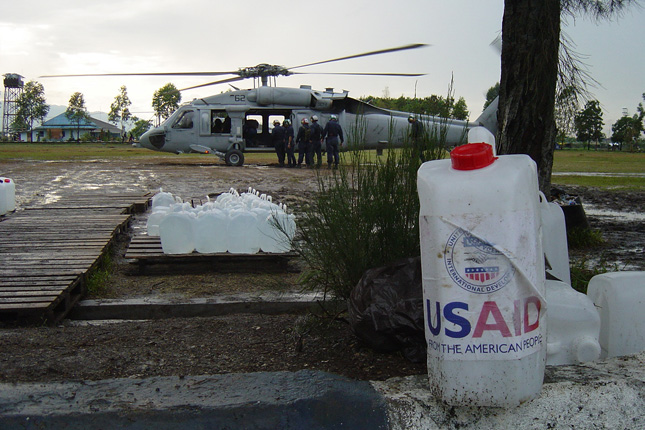
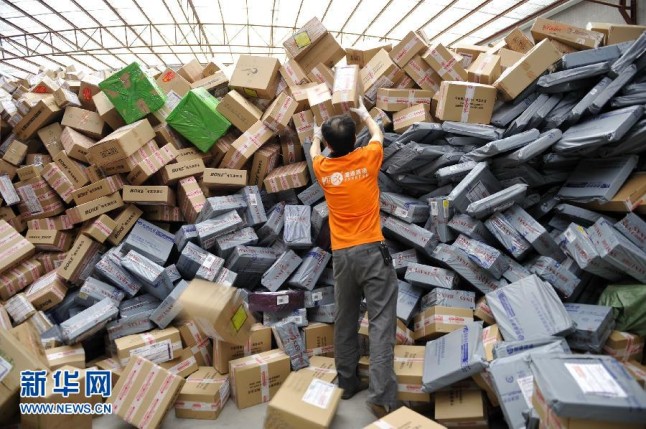
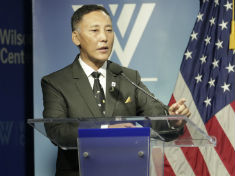 As a child growing up in Nepal’s mountainous Upper Mustang region, Ghana Gurung understood that his survival depended on the mountains and his community. Today, as senior conservation program director at World Wildlife Fund-Nepal, he works to protect the endangered and elusive snow leopard by improving local communities’ livelihoods and the mountains’ ecosystem.
As a child growing up in Nepal’s mountainous Upper Mustang region, Ghana Gurung understood that his survival depended on the mountains and his community. Today, as senior conservation program director at World Wildlife Fund-Nepal, he works to protect the endangered and elusive snow leopard by improving local communities’ livelihoods and the mountains’ ecosystem.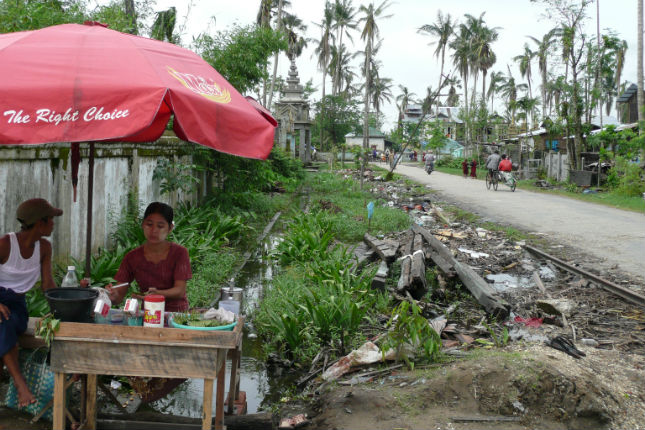
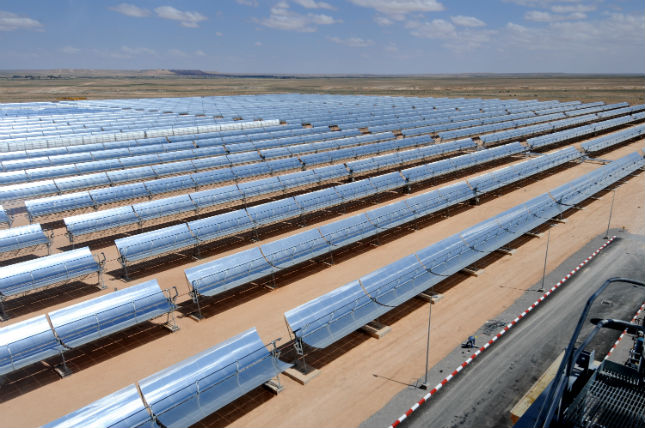
 Climate change poses an undeniable threat to small island states, but many islanders do not even know what climate change is, says Camari Koto, an indigenous Fijian academic and educator at the University of the South Pacific and member of the
Climate change poses an undeniable threat to small island states, but many islanders do not even know what climate change is, says Camari Koto, an indigenous Fijian academic and educator at the University of the South Pacific and member of the 